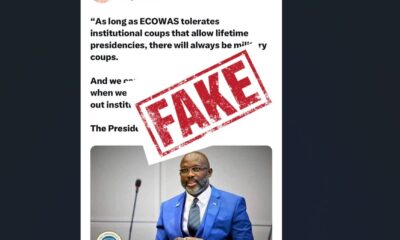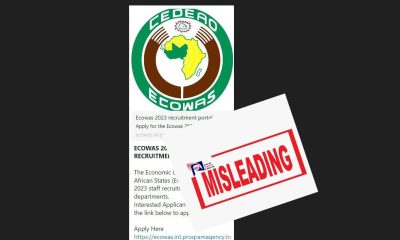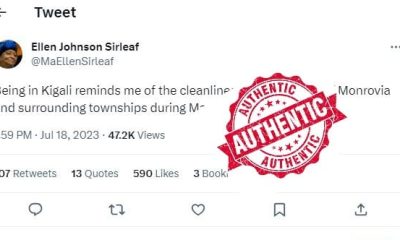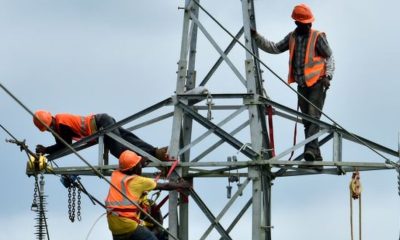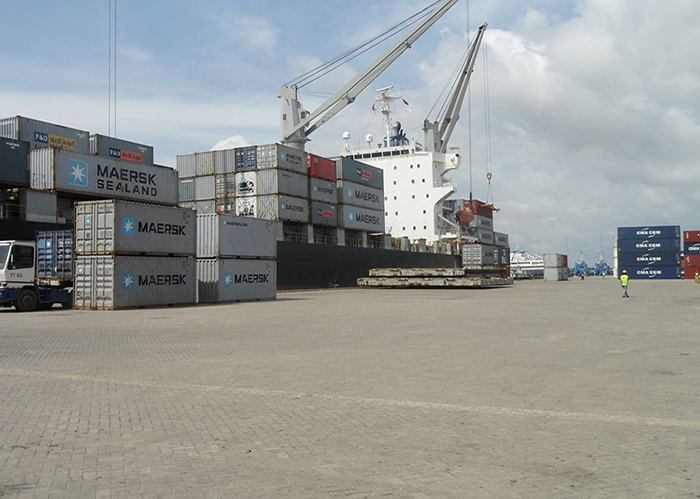Monrovia — Liberia’s Minister of Finance and Development Planning Samuel Tweh recently claimed that “the tariff rate in Liberia is less than any other country in Africa except Nigeria”.
Report By: Varney Kelvin Sirleaf, Local Voices Liberia Fact Checker
Speaking at an intellectual forum in Monrovia, Minister Tweh told his audience that his reliance was a World Bank report on seaport average tariff rate. He also urged his audiences to verify the claim by checking the report.
Said Min. Tweah: “The tariff rate in Liberia is less than any other country in Africa maybe except Nigeria — the data again shows that. Go to the World Bank database and search for mean weighted Seaport Average tariff and put in Rwanda, Sierra Leone, Ghana you will see that Liberia is the lowest”.
However, when LocalVoicesLiberia fact checked, we found that the report, which covers data from 1988 to 2019 for all countries, does not have any 2019 data for Liberia. There is currently no data for 2021 and also Liberia latest available data is for 2018.
According to the World Bank, weighted mean applied tariff is determined by dividing the total tariff revenue by the total value of imports. Our search shows that the World Bank only has 2018 data on Liberia’s import tariff which is at 9.5% although there are available 2019 data on other countries.
The chart also shows that Nigeria applied tariff of mean weighted for all products in 2019 was at 8.5%. The 2019 data show that 24 out of Africa’s 54 countries have an applied mean weighted tariff rate of all products lower than Liberia’s 9.5%.
The data shows that Botswana is the least with 1.0%, follow by Namibia and Mauritius with 1.1%, Lesotho and Zambia at 3.4% and Morocco at 3.6%, amongst others.
In West African, Burkina Faso is the lowest with 5.8, Mali 7.2%, Ivory Coast with 7.7%, Mauritania 8.0%, Nigeria 8.5%, Senegal 9.1%, and Niger 9.3%.
The World Bank relies on the World Integrated Trade Solution system which collects data from United Nations Conference on Trade and Development’s Trade Analysis and Information System and the World Trade Organization.
Conclusion
Based on data collected from the World Bank tariff rate, applied, weighted mean for all product which was Minister Tweah’s reliance when he made the claim, we found the claim to be incorrect.
Our research also shows that the data Finance Minister Samuel Tweh relied on revealed that 24 countries in Africa have lower tariff rates applied on weighted mean than Liberia.
| Claim |
Verdict |
|
Liberia has the lowest weighted Seaport Average tariff rate except Nigeria
|
No. Claim is Incorrect |
You may contact us to fact check any claim or information relative to Liberia. Contact us on:
Factcheck.localvoicesliberia@gmail.com or WhatsApp: +231880986778

